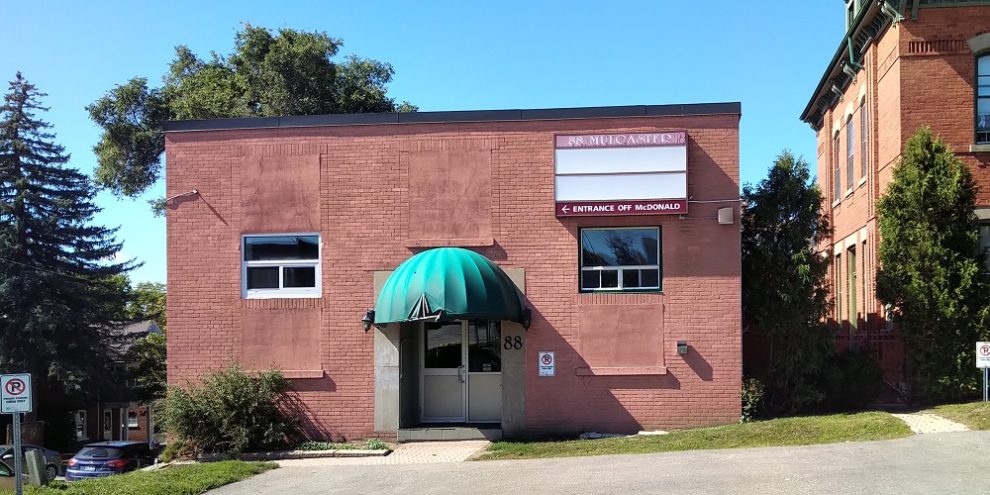
A whirlwind of activity in the past 48 hours by the City of Barrie and County of Simcoe to aid local shelters as they scramble to transition out of the emergency motel model for the homeless.
On Tuesday, the county approved a motion to pony up $800,000, on top of the $400,000 approved by Barrie city council on Monday.
"In the homeless population, there is a mix of people," says Barrie mayor Jeff Lehman. "Some people who are probably able to find something else, maybe even leave town, and some individuals will choose to live right in tents. But there are others who have severe mental health issues or physical health issues, and those individuals just can't live on their own."
"We know how bad the housing crisis is in Barrie, and it's almost impossible for the shelter providers to try and find them an apartment and some community organizations to support them."
Lehman says the funds will be used to try and find both shelter and support, whether that's physical or mental health, or it could be addictions.
The emergency motel model was established with the arrival of the pandemic in March 2020 as shelters reduced capacity or even closed to meet public health requirements. The provincial and federal governments have provided funding, and while the program was to end on June 30, there has been a two-week extension until July 15.
In 2022, the average cost for the motel model was $850,000 per month including motel costs, staffing and program expenses to run the program at the Travelodge on Bayfield Street housing as many as 140 to 175 people nightly. The program is being run by the Busby Centre and Elizabeth Fry Society.
"The motel model does need to end. It was a COVID response, and now we need to go back to the forms of support that existed previously," says Lehman.
The biggest problem says the mayor is the number of people who are homeless is much larger.
"There are a number of reasons for that, but the housing crisis is chief among them, and their acuity, which is how serious their illnesses or problems are that have led to their situation is also higher."
The county is responsible for managing social services for the region including the separated cities of Barrie and Orillia, and that includes funding the shelter system.
But who are some people experiencing homelessness that would not be able to fend for themselves without assistance?
"There are elderly individuals who may have dementia as well as substance issues," explains Lehman. "They may have physical health constraints or disabilities, and there are a few people living at the motel who are in wheelchairs, and those folks just cannot be abandoned to their fate."
The mayor is frustrated that over the course of COVID the last two years there has been almost no investment into more shelter capacity or supportive housing, which Lehman says is a temporary form of accommodation where there is also mental health, addictions and physical health support.
"All of these things require additional capacity that just doesn't exist," explains Lehman. "One of the really unfortunate things in the last two years is, although charities in Barrie have applied to create more capacity, those applications were by and largely unsuccessful."
He says one of the frustrating and difficult things about housing and homelessness is there are literally four levels of government that in one way or another play a role. The federal government has a lot of the money, says the mayor, and the provincial government has the responsibility to deliver social services and homeless services, but they delegate that to local governments like the county of Simcoe who then delegate to the charities.
"Unless that support keeps up with the demand for services, there will be people who don't get help and end up living rough in our community."
Ontario's Big City Mayors, of which Barrie is a member, brought a motion to ask for an emergency meeting with the premier on this issue.
"We have continued that call over the past several weeks because we see that situation as mayors in our own cities as being much worse than it was a few years ago. We really do need all levels of government to come to the table and help people who are very vulnerable."
The county says transition planning toward the wind-down of the motel model was actively underway in the fall of 2021.
"At that time, two shelter providers were supported to return to their regular congregate settings, Youth Haven in Barrie and The Lighthouse in Orillia," according to a staff report. "The Salvation Army (Barrie) remained in their regular congregate setting, operating at reduced capacity throughout the pandemic. As COVID-19 surged in the late fall of 2021 and the number of homeless individuals accessing the temporary shelter model increased, transition planned was paused for the Elizabeth Fry Society (Barrie based temporary motel model, the Busby Centre (Barrie and Collingwood based temporary motel model) and The Guesthouse Shelter (Midland-based temporary motel model."
The county says a church in Barrie has extended an offer for use of temporary overnight space, but no final agreement has been reached, and shelter providers are considering this site, among other options, for potential use, noting the site at the church does not allow for sleeping on site.





